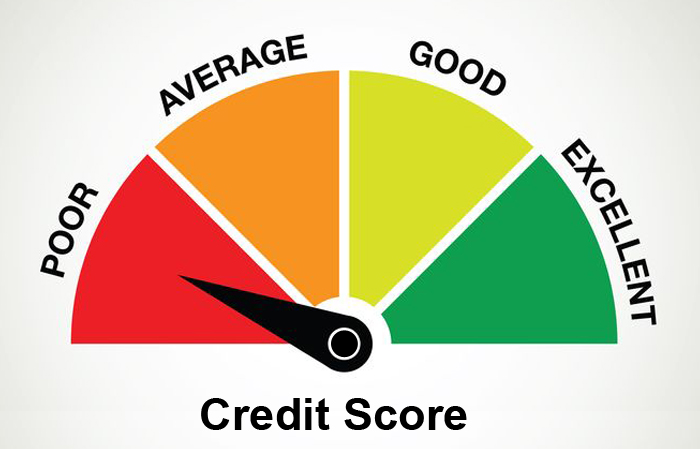The historical trend of real estate shows that property always appreciates in value. As a result, real estate remains an excellent investment for investors despite the present market slump.
Furthermore, people will always require a roof over their heads, resulting in assured demand for investors in the residential sector, international estate planning, and enhanced property value once the economy recovers. Regardless of the favorable conditions, there are a few things to keep in mind. Click here for more information.
Importance of a Good Credit Score

A good credit score is one of the most important things a real estate investor can possess. This asset has the ability to not only maintain the competitive mortgage and refinancing rates but also to strengthen an investor’s negotiation position when pursuing credit.
While a lower credit score does not automatically disqualify prospective investors, it might limit one’s capacity to access specific lending programs in residential reconstruction.
Individuals with subprime credit may encounter financial hurdles to homeownership, making it more difficult to acquire their ideal house. The good news is that investing in real estate with low credit is still possible, using various methods that do not need you to use your funds.
As an investor, the first step is to comprehend the significance of your credit score, as well as strategies for improving it.
How Credit Score is Rated
A normal credit score is expressed in terms of points. FICO, the most widely used scoring model, ranges one’s credit score from 300 to 850 points:
- Bad Credit: 300 – 600
- Poor Credit: 600 – 649
- Fair Credit: 650 – 699
- Good Credit: 700 – 749
- Excellent Credit: 750 – 850
Credit scores are essential to a creditor because they indicate the level of risk you present. It simply gives a statistical way of determining a person’s chances of repaying a loan.
A traditional real estate loan requires an average credit score of 752. Credit scores above 760 are considered elite, with lenders usually giving these consumers the highest rates and the most options. Credit ratings below 620 are considered subprime, which makes locating a loan source far more difficult.
How to Invest in Real Estate with a Low Credit Score

1. Hard Money
Hard money lenders are your route to success as a low-credit real estate investor. Unlike regular lenders, these lenders give high-interest, short-term loans to real estate investors. Hard money interest rates often vary from 10% to 18%, with extra costs known as “points” ranging from 3% to 10% of the loan amount.
2. Private Money

Private money is another source of funding. Private money lenders are similar to hard money lenders in that they are backed by private organizations or people that establish their own criteria, such as imposing terms, fees, rates, and restrictions.
While credit ratings may be of concern to some lenders, others are more interested in finding alternative ways to spend their money, such as a healthy return on investment.
3. Wholesaling
In this new approach, you look for properties that may be purchased for substantially less than their market worth, utilize a specific agreement to control them, and then locate someone who is prepared to buy your contract. It’s one of the most inventive methods to invest in real estate with bad credit scores since there’s no credit check.
4. FHA Loan

An FHA loan is a popular option for investing in real estate with weak credit. The Federal Housing Administration (FHA), a subsidiary of HUD, needs a credit score of 620 and a 3.5 percent down payment. Although FHA does not offer loans, it assures lenders that they will be reimbursed if you default.
20% down payment or a PMI
For most people, a 20% down payment is a substantial amount of money. For others, putting less down and accepting a higher interest rate and monthly payment makes more sense if it means developing equity in a house rather than paying rent elsewhere.
However, a 20% or greater down payment is critical for people looking to save money on their mortgage in the long run. It may help make house ownership more accessible by lowering interest rates and monthly payments over time.
While a 20% down payment is not a mandatory requirement when purchasing a property, it is a smart choice if possible. However, you should not assume that you can’t purchase a property if you lack sufficient funds. Explore your options and if paying less than 20% down payment is favorable for you, do it!
PMI

PMI is a type of mortgage insurance that purchasers normally must pay when depositing less than 20% of the home’s purchase price on a conventional loan. Numerous lenders offer zero-down payment options that need as little as 3% of the purchase price.
The cost of such versatility is PMI, which safeguards the creditor’s investment in the event that you default on your mortgage. On the other hand, PMI protects the lender, not the borrower.
If you don’t have a sizable down payment saved up, paying PMI is a cost you’ll incur in order to borrow more funds. If you choose this route, you are not alone. Nowadays, the majority of homeowners put down less than 20%. According to a poll conducted by the National Association of Realtors, the typical down payment on a house was 10% in 2017.
Benefits of a Real Estate Agent
Although some people avoid working with real estate agents to avoid paying fees and commissions, employing a real estate agent helps save significant amounts of money in the long run. When you sell or purchase directly, you must devote valuable time to locating the best customers, arranging meetings, preparing documentation, and negotiating.
Since you may lack the necessary skills and expertise, the procedure may take longer, and you will spend a lot of money supporting the activities. A good rule of thumb to follow is: the more competitive the market is, the more knowledgeable your real estate agent should be.
For example, if you are buying a condo in Scottsdale, AZ, an experienced real estate agent in Scottsdale is absolutely essential.
By delegating the job to a real estate agent, the time required to complete the transaction will be shortened, as they possess the expertise necessary to expedite the process. As a result, the amount of money required to support the procedure in the long term is decreased.
Having an Inspection Done

You may save a lot of money by having your house examined. A home inspection might uncover significant damage that has previously gone unnoticed. When investigating a home on one’s own, there are several difficulties that the normal person ignores, such as mechanical breakdowns and issues in crawl spaces.
If faults aren’t caught early on, they’ll cost you more money in the long run. In certain circumstances, you’ll be losing money because of the complications.
Importance of a Realistic Budget
To be successful as a real estate agent, you must manage your enterprise like a business. This begins with developing — and adhering to — a comprehensive budget.
Creating and sticking to a budget allows you to keep your spending in line with your income. A budget may assist in maintaining financial security in a career with high expenses and inconsistent revenue.
Real estate brokers often incur significant expenses before receiving a commission on a transaction. Sometimes the money spent on a customer does not result in a sale. However, they may still be eligible to deduct those costs on their tax returns.
Summary
You can always rely on the value of real estate to appreciate over time, however, make sure to follow the guidelines outlined above to ensure you maximize on your profits.







